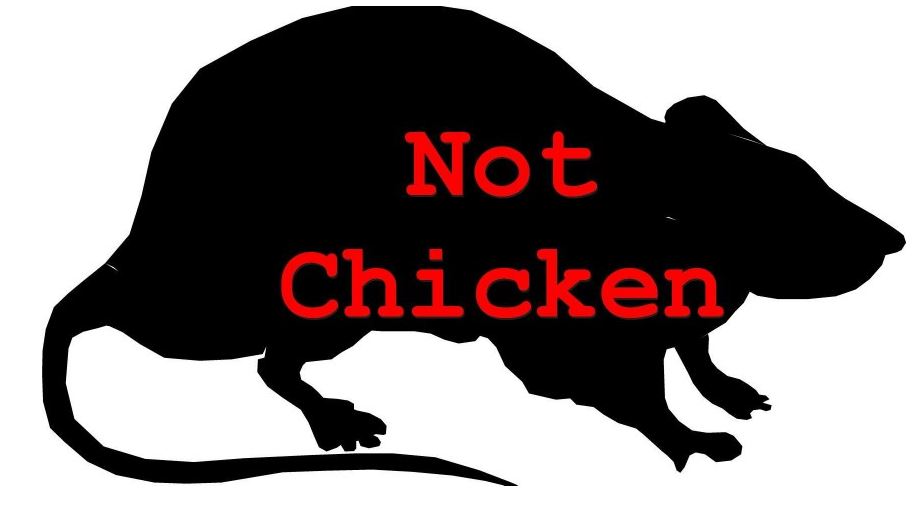Get PolitiFact in your inbox.
At first look, BostonTribune.com certainly seems a trustworthy source. So does KMT11.com. And ABCNews.com.co. Even 24wpn.com has an official ring to it.
But all of these websites peddle bogus stories, either by making up fake news or sharing it from other sources. And it’s not always apparent to readers that’s the case.
Since December, we at PolitiFact have been partnering with Facebook to root out fabricated reports shared by social media users. As of April 19, we’ve written more than 80 fact-checks about fake news stories. We’ve noted some trends along the way, chief among them that it can be really difficult for readers — from casual skimmers to seasoned newshounds — to spot fake news outlets when they pop up.
It’s also difficult to determine where these fictional stories come from, and just how they spread across the Internet.
Using our experiences, we've been able to create our own fake news almanac. We want to help readers sort out fact from fiction on your social news feeds, so we compiled a list of every website on which we’ve found deliberately false or fake news stories since we started working along with Facebook — to 330 in all. (This list was last updated Nov. 9, 2017, and is no longer updated.)
This is by no means a complete list of offenders. Nor does it necessarily mean every post on these websites is fake. But in most cases, these sites work hard to fool readers, and you should take that into consideration if should you see a link being shared from one.
Some websites just want you to click on their pages to generate advertising revenue. Others, it appears, want to reinforce fiercely held political views. And some regular websites apparently get duped by fake news articles, the same as readers.
We’ve broken the websites on our list down into four broad categories, marked by specific aims and methods for generating or sharing fake news. Let’s take a closer look at all four and how they operate.
Parody or joke sites
A story on the parody website Politicono.com played off news of an African-American Santa Claus in Minnesota and ridicule of Sarah Palin by the political left.
Many of the deliberately false or fake news stories we see in social media feeds begin on websites that attempt to parody real news — imagine the humor website The Onion, but without the name recognition (or often the comedic writing talent).
It can be difficult to parse what the aims of these parody sites may be. They could be writing stories purely for entertainment, or they may be trolling a particular set of voters. These websites may or may not make it clear on individual links that their stories are fake, but will almost always say in a disclaimer somewhere on their site that their content is exaggerated or fictional.
For example, a Dec. 3, 2016, article on a website called Politicono.com carried the headline, "Sarah Palin Calls To Boycott Mall Of America Because ‘Santa Was Always White In The Bible.’"
This story referred to a factual development: Minnesota’s Mall of America hiring its first black Santa Claus.
But then it quoted Palin as saying people should run the Mall of America "into the ground," on the basis of Santa "always having been white in the Bible," and, "No, I refuse to believe that they went this far in trying to cater to the minorities, I thought the company had some backbone but I guess I was wrong."
The former Alaska governor and 2008 Republican vice presidential candidate never said these things. We rated the claim Pants On Fire!
If you look closely enough, Politicono.com admits it makes things up. The site calls itself a "hybrid news/satire platform," taking real news hooks and building fake stories on top of them.
Every article has a "show facts" button to illuminate which parts of the story are real and those that are fabricated. Only the first paragraph about the mall hiring an African-American Santa Claus is real. (Palin was not too pleased about the parody.)
Politicono.com is not alone. It is part of an entire family of similar websites under the Newslo.com umbrella. Similar urls share reports like this one, including websites like Politicalo.com, Politicot.com, Religionlo.com and Politicops.com.
These are all registered to an administrator named Eli Sompo, who told us he creates sites for clients, but wouldn’t give us much more information than that. Newslo.com is registered in Thessaloniki, Greece, but most of the sister sites belong to an address in Jerusalem.
Being able to identify Sompo as the administrator is an exception, because learning who owns and operates these websites can be exasperatingly difficult. We can look up the owner of any website, but if the buyer has used a proxy service of some kind to buy the domain, there are precious few details about the true owner, or even from which country the site is operated.
That is especially true in the case of our next couple of categories.
News imposter sites
The website CNNews3.com ran this fake story about children being infected with HIV by tainted bananas.
Adding to the fog of fake news online, several websites appear to try to confuse readers into thinking they are the online outlets of traditional or mainstream media sources.
These sites attempt to trick readers into thinking they are newspapers or radio or television stations. Like many other fake news sites, it’s very difficult to see who owns them, thanks to private registrations.
We did see that some sites were based in far-flung global locations like Macedonia and Chile. But most imposters we’ve found so far have set up shop anonymously through domain services like GoDaddy.com.
One such site, CNNews3.com, not only used a web address similar to CNN, but its graphics also deliberately looked almost the same.
The website ran a story on Feb. 6, 2017, that carried the headline, "HIV virus detected in Walmart bananas after 10 year old boy contracts the virus." (The website was recently taken down, but there's an archived version of the story here.)
For the record, HIV can’t survive outside the human body, so it’s not possible for the virus to live in a fruit like a banana. The CNNews3.com story tries to cast doubt on this by noting researchers were puzzled by the banana-borne infections.
We learned this story was a variation of other fake stories of disease-ridden fruit, and this one sprung from a Facebook user posting photos of a malady called mokillo. Mokillo is more colorfully known as finger-tip rot, and can be a problem for banana growers. The disease doesn’t harm humans, but it does require banana growers to disinfect farming equipment.
We rated that statement Pants On Fire!
But while that story looked to instill fear to generate shares and clicks, some imposter websites appear to bank more on readers zeroing in on things they want to hear more about.
We found an entire family of sites that created different versions of posts keyed to town names, apparently to generate advertising revenue. These sites have official-sounding names like 16WMPO.com, KY12News.com, Local31News.com and more, posting various versions of stories that falsely claim an event has happened.
These posts, with only slight variations in details, say a celebrity’s car broke down in a particular place, that a celebrity is moving to a certain town or, say, that the next Star Wars movie is being filmed nearby.
The bulk of fake news websites, however, end up peddling their wares in a much more insidious manner.
Fake news sites
A fake news story that says former First Lady Michelle Obama's mother Marian Robinson was charged with fraud and grand larceny has appeared on several websites, including this example from FlashNewsCorner.com.
There's little consistency of content or style among fake news sites — the common thread appears to be that they distribute fabricated content, but the reasons aren’t always apparent.
We have found that almost all of them share or reblog a good deal of content from other sites, either with or without attribution, and much of it is from the sites in the first two categories. They also can potentially create their own false stories, or distribute larger conspiracy theories.
These sites can be based anywhere. While many of them mask their registry information, we’ve found outlets based across the United States, but also in Canada, Georgia, Ghana, Sri Lanka and, as previously mentioned, Macedonia — a country where teenagers turned fake news into a regular cottage industry during the 2016 election.
One website we’ve written about was UndergroundNewsReport.com, a fake news site that was started as a joke by an American living in Costa Rica. James McDaniel of Clearwater, Fla., wanted to fool Donald Trump’s supporters, so he attempted to cook up the most outrageous manufactured headlines he could think up.
Instead of fading away into obscurity, the site gained 1 million views in less than two weeks. McDaniel eventually shut the site down once a fake story about Whoopi Goldberg insulting the wife of a slain Navy SEAL drew too much ire from readers who were fooled.
Another prime example of a story that spread across fake news sites was one that said "first grandma" Marian Robinson will be getting a $160,000 annual pension after President Barack Obama and his family moved out of the White House.
Bloggers on the websites USPostman.com and ENHLive.com both posted articles around December 2016 that said Robinson will get paid the money for "services rendered as full-time/in-home caregiver" for watching granddaughters Sasha and Malia.
Of course, there are no such provisions for a first grandmother, and Robinson received nothing. We rated it Pants On Fire!
The original story appeared on BostonTribune.com, a parody site that no longer appears to be working, and found its way to other sites.
The migration shows how joke stories can cause harm even if they are originally labeled as fabricated. Other websites steal them to grind out page views, omitting indications the stories are made up.
Most of these sites join services like Content.ad or RevContent.com that allow them to post a collection of provocative ads to make money off clicks. All the sites really need is content to keep the page views rolling in. While elaborate conspiracy theories and mindless clickbait show up on the pages, completely made up posts work just as well.
A bogus story like the one concerning Robinson highlighted several ingredients essential to making a fake news story draw readers and go viral: Outrageous claims, partisan rancor, government mechanisms, tax money and the president’s family (President Barack Obama, in this case).
Fake news doesn’t easily die, either, instead morphing into new stories and propagating its own lies.
Many websites later ran a follow-up about Robinson originally posted on TheLastLineOfDefense.org, an outlet that started as an elaborate ruse in which liberals trolled conservatives with wild, made-up posts looking to inflame the political right.
Fake news sites have flocked to TheLastLineOfDefense.org, appropriating its stories to serve as repurposed content. One story said Robinson was arrested and charged with larceny and fraud for attempting to collect the mythical pension propagated by BostonTribune.com.
That story also was made up, for the record.
Sites that contain some fake news
A 2016 post on UrbanImageMagazine.com using this image had been shared on Facebook more than 178,000 times, but is based on a fake news story.
Finally, some websites appear to get duped like the rest of us.
We have checked statements from sites that appear to carry real content, but contained one or more fake news stories. We don’t know whether this is intentional or accidental, but it happens.
One statement we checked was a Feb. 15, 2016, post on UrbanImageMagazine.com, a lifestyle and culture website, that declared that "300,000 pounds of rat meat sold as chicken wings across America." We found other instances of the same story elsewhere, too.
The fake story said the Food and Drug Administration was issuing a warning about rodents being sold as chicken wings after several shipping containers of rat meat were impounded coming into San Francisco from China. The rat meat was allegedly filtering into the food system to deal with a shortage of poultry leading up to the Super Bowl.
We rated the statement Pants On Fire! UrbanImageMagazine.com later told us they "had no idea" the story was fake.
The story actually came from WorldNewsDailyReport.net, a known peddler of fake articles. The site admits as much in its disclaimer, referring to "the satirical nature of its articles and for the fictional nature of their content."
Sometimes it’s not even the editors of a site that are reposting the fake stuff. Outlets with user-generated content often fall victim, as well.
An example is a post dated Dec. 8, 2015, headlined "Jimmy Carter: ‘Medical marijuana cured my cancer,’ " from CannaSOS.com. The site says it is a social media platform where "cannabis enthusiasts" can discuss information related to marijuana.
The story said Carter credited marijuana for curing his cancer, but the fake story appears to have originated from a Dec. 7, 2015, post on a site called SatiraTribune.com. The post even credited the opening line from The Toyes’ 1983 weed anthem "Smoke Two Joints" to Carter.
There’s no disclaimer on the site, but their Facebook page notes that SatiraTribune.com publishes "satirical and futuristic news."
We rated this one Pants On Fire!
We had asked CannaSOS.com if they had been aware the story was fiction. An administrator eventually told us that the post was a reader submission, and they were aware it was fake.
But as of this writing, both the CannaSOS.com and UrbanImageMagazine.com posts are still online.
Ryann Welch contributed to researching this report.
Our Sources
See individual fact-checks for complete source lists.






































